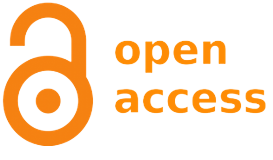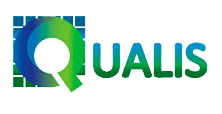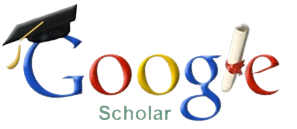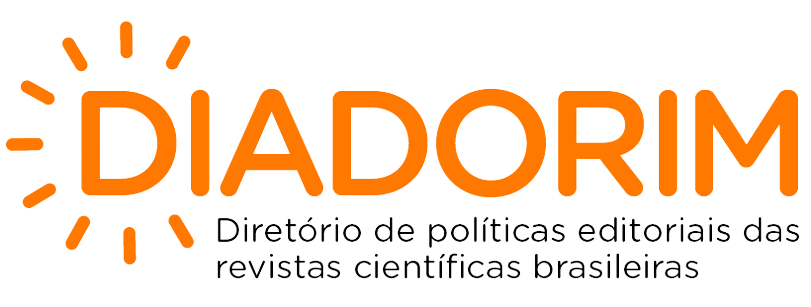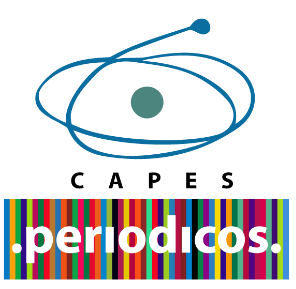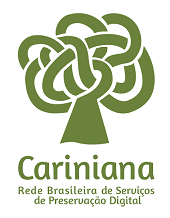Infoeducation: A step beyond science and professionalism
DOI:
https://doi.org/10.5433/2317-4390.2016v5n2p05Keywords:
Information Education, Information Literacy, Informational Knowledge, Informational Skills, Cultural AppropriationAbstract
Introduction: This article addresses infoeducation and its importance to professionals in the area of information.Objective: In order to do so, it refers back to the origin and development of infoeducation at the School of Communication and Arts of University of São Paulo (ECA/USP), as a result of research and studies, which have been carried out by transdisciplinary teams and coordinated and led by Prof. Dr. Edmir Perrotti, since the late 1980s. Infoeducation is defined as a field of studies and sociocultural actions concerning the formative dimension of information, aiming at processes of mediation and the pursue of informational knowledge.
Methodology: Infoeducation is presented here based on theoretical and methodological assumptions that differ from functionalist and merely procedural perspectives leveraged by the educationally restricted notion of information competency. Those assumptions, however, have guided much of the work concerning information literacy in Brazil and also abroad.
Results: The formulation of the concept of info-education, based on theoretical and practical research, redefines historical and asymmetric relations between information and education, articulating them in a dynamic and non-hierarchical way. It is an epistemological and practical rupture, which, besides developing a body of theoretical and methodological distinctions, opens up paths for overcoming restricted approaches that only focus on procedural and adaptive perspectives, which, as in the past, subordinate the field of information to the field of education, an attitude that does not correspond to the contemporary cultural reality.
Conclusions: In conclusion, infoeducation is a step beyond science and professionalism. Its transdisciplinary and sociocultural methodology, allows not only to approach fundamental epistemic dimensions involved in the relationship between information and education but also to provide foundation for librarians, museum curators, archivists and the places where they work, so that they can gain centrality and essentiality in the dynamics of the pursue of information, knowledge and culture, nowadays.
Downloads
References
ARENDT, H. A condição humana. Rio de Janeiro: Forense-Universitária, 1999.
BARBIER, J.M. Savoirs théoriques et savoirs d'action. Paris: Presses Universitaires de France, 1996. (Pédagogie d'aujourd'hui).
BENJAMIN, W. Experiência e pobreza. In: BENJAMIN, W. Magia e técnica, arte e política. São Paulo: Brasiliense, 1993a. p. 114-119.
BENJAMIN, W. O narrador. Considerações sobre a obra de Nicolai Leskov. In: BENJAMIN, W. Magia e técnica, arte e política. São Paulo: Brasiliense, 1993b. p. 197-221.
BOUTIN, G. L'obssession des compétences: son impact sur l'école et la formation des enseignants. Montreal: Éditions Nouvelles, 2000.
BRUNER, J. Atos de significação. Porto Alegre: Artes Médicas, 1997.
COLL, C. et al. O construtivismo em sala de aula. Porto Alegre: Artmed, 1998ª.
COLL, C.; VALLS, E. A aprendizagem e o ensino de procedimentos. In: COLL, C.; POZO, J. I.; SARABIA, B.; VALLS, E. (Org.). Os conteúdos na reforma: ensino e aprendizagem de conceitos, procedimentos e atitudes. Porto Alegre: Artmed, 1998. p. 73-118.
COLL, C.et alli, orgs. Os conteúdos na reforma: ensino e aprendizagem de conceitos, procedimentos e atitudes. Porto Alegre: Artmed, 1998b.
CORNU, B. et al. Introduction: Vous avez dit societé de l'information? In: LA SOCIETÉ de l'information: glossaire critique. Paris : Commission Nationale Française pour l`UNESCO, s.d. p. 9-35.
FARIA, I. P. Estação Memória: lembrar como projeto. Contribuições ao estudo da mediação cultural. São Paulo, 1999. Dissertação
FREIRE, P. A importância do ato de ler: em três artigos que se completam. São Paulo: Autores Associados: Cortez, 1989. (Polêmicas do Nosso Tempo, 4)
FREIRE, P. Pedagogia do oprimido. 9. ed. Rio de Janeiro: Paz e Terra, 1981.
HABEREY-KNUESSI, V.; HEEB, J.L. Pour une critique de la compétence. La question du sujet et de la relation à l'autre. Paris: Harmattan, 2015.
HERMÈS: cognition, communication, politique. Le dispositif: entre usage et concept. Paris : CNRS Editions, n.25, 1999. 297p.
HOUSSAYE, J. Incompétences des compétences. In: HABEREY-KNUESSI, V; HEEB, J. L. Pour une critique de la compétence. La question du sujet et de la relation à l'autre. Paris: Harmattan, 2015. p.9-20.
LAZARTE, L. Ecologia cognitiva na Sociedade da Informação. Ciência da Informação, Brasília, v. 29, n. 2, p. 43-51, maio/ago. 2000.
MORIN, E. Introdução ao pensamento complexo. Porto Alegre: Sulina, 2006.
MORIN, E. Os sete saberes necessários à educação do futuro. São Paulo: Cortez; 2000.
OLIVEIRA, A. L. A negociação cultural: um novo paradigma para a mediação e a apropriação da cultura escrita. São Paulo, 2014. Tese (Doutorado em Cultura e Informação) - Escola de Comunicação e Artes, Universidade de São Paulo, São Paulo.
PERAYA, D. Médiation et médiatisation: les campus virtuel. Hermès: cognition, communication, politique, Paris, n.25, p. 153-167, 1999.
PERROTTI, E.; PIERUCCINI, I. Infoeducação: saberes e fazeres da contemporaneidade. In: LARA, M.L.L; FUJINO, A.; NORONHA, D.P. Informação e contemporaneidade: perspectivas. Recife: Néctar, 2008. p.47-96.
PERROTTI, E.; PIERUCCINI, I. Infoéducation: ceci n'est pas une pipe. À la recherche d'une troisième rive". Mediadoc Apden, Paris, n.16 : 18-21, juin, 2016.
PERROTTI, E; PIERUCCINI, I. A mediação cultural como categoria autônoma. Informação & Informação. Londrina, v. 19, n. 2, p. 01-22, out. 2014. Disponível em: http://www.uel.br/revistas/uel/index.php/informacao/article/view/19992. Acesso em: 05 mar. 2015. doi:10.5433/1981-8920.2014v19n2p01.
PIERUCCINI, I. A ordem informacional dialógica: estudo sobre a busca de informação em Educação. São Paulo. 2004. 194f. Tese (Doutorado em Ciência da Informação e Documentação) - Escola de Comunicações e Artes, Universidade de São Paulo, São Paulo. Disponível em: file:///C:/Users/IVETE/Downloads/Bancotesesusp%20(1).pdf . Acesso em: 8 ago. 2015.
RANDOM, M. La pensée transdiciplinaire et le réel. Paris: Dervy, 1996.
SERRES, A. Dans le labyrinth: evaluer l'information sur Internet. Caen: C&F Ed., 2012. (Mestrado) - Escola de Comunicações e Artes, Universidade de São Paulo, São Paulo.
SHAPIRO, J. J.; HUGHES, S. K. Information Literacy as a liberal art: enlightenment proposals for a new curriculum. Educom Review, v. 31, n. 2, mar-abr. 1996. Disponível em: http://net.educause.edu/apps/er/review/reviewarticles/31231.html Acesso em: 26 mai. 2016.
WURMAN, R.S. Ansiedade de informação: como transformar informação em compreensão. São Paulo: Cultura Editores Associados, 1991.
ZABALA, A. A prática educativa. Porto Alegre: Artmed, 1998.
ZABALA, A. Como trabalhar os conteúdos procedimentais em aula. Porto Alegre: Artmed, 1999.
ZURKOWSKI, P. G. The information service environment relationships and priorities: report 5. Washington, D.C., National Commission on Libraries and Information Science, Nov 1974. 30p. Disponível em: http://files.eric.ed.gov/fulltext/ED100391.pdf Acesso em: 16 ago. 2016.
Downloads
Published
How to Cite
Issue
Section
License
Copyright (c) 2016 Informação@Profissões

This work is licensed under a Creative Commons Attribution 4.0 International License.
A revista se reserva o direito de efetuar, nos originais, alterações de ordem normativa, ortográfica e gramatical, com vistas a manter o padrão culto da língua e a credibilidade do veículo. Respeitará, no entanto, o estilo de escrever dos autores. Alterações, correções ou sugestões de ordem conceitual serão encaminhadas aos autores, quando necessário.
O conteúdo dos textos e a citação e uso de imagens submetidas são de inteira responsabilidade dos autores.
Os trabalhos publicados passam a ser propriedade da revista Informação& Profissões, ficando sua reimpressão total ou parcial sujeita a autorização expressa da revista. Em todas as citações posteriores, deverá ser consignada a fonte original de publicação, no caso a Informação&Profissões.




